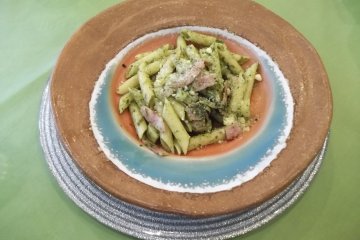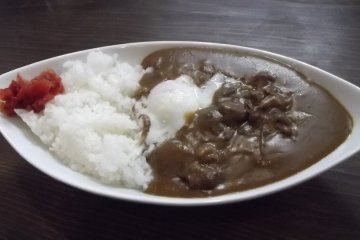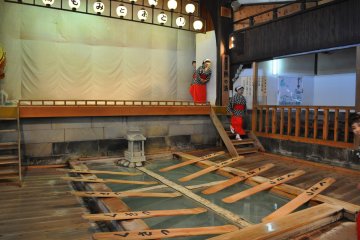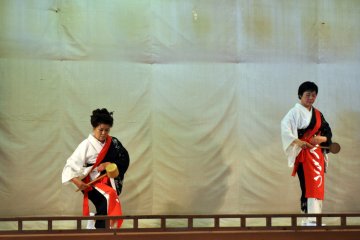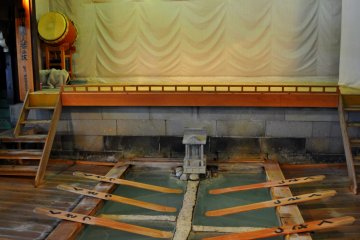Right next to the yubatake in the center of Kusatsu is a building that stands out with beautiful stained glass of scenes depicting an age-old onsen practice.
Yumomi, literally meaning “hot water rubbing,” is performed to cool down the onsen waters (much like stirring your coffee in a traditional, specific manner to cool it off). Hot spring water is scalding and incapable to be bathed in directly, with temperatures ranging from 50°C to 90°C (122°F to 194°F).
The water gets to these temperatures due to the groundwater mixing with volcanic gas before filtering through rocks and minerals and coming to the surface. The onsen water is initially very acidic but is neutralized by limestone and collected at Shiaki Dam.
Cold water is not used because it is said that it would dilute the healing powers of the hot spring water.
Stirrers mix the water using an ita, or wooden plank, 180 centimeters in length. In Japanese, this measurement unit is called a rokushaku, and one isshaku is measured at 30 centimeters.
In the Meiji Period (1868-1912), a group leader called a taisho (called a yucho today) directs the stirrers in cooling the water, giving out a universal beat as a song is sung. After a few minutes, the taisho allowed the stirrers to briefly bathe in the water. Before doing so, the stirrers would pour water over their heads using a hishaku, or ladle.
The yumomi ceremony at Netsu no Yu—where visitors are able to watch and even partake in stirring the water—has traditional songs and dances performed. Visitors who participate in mixing the onsen water receive an official certificate.
Visitors can also learn more about yumomi, the health benefits of hot springs and the history of Kusatsu with a visit to the Kusatsu Hot Springs Museum, located on the third floor of the bus terminal. Hours are from 9:00 a.m. to 4:30 p.m. and admission is ¥200 for adults and ¥100 for children.
To participate in the yumomi demonstration, it is ¥500 for adults and ¥250 for children. Otherwise, it is ¥200 for visitors elementary school age and older.




